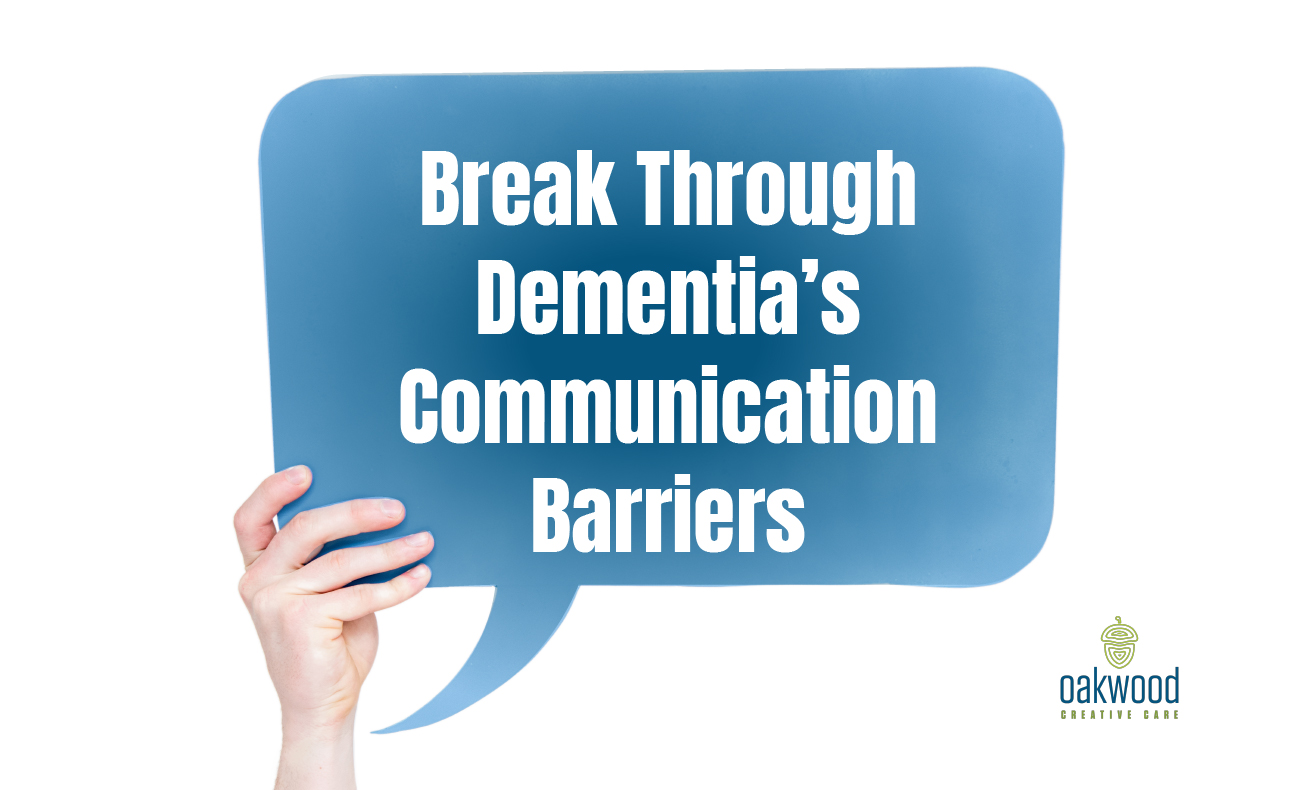Learning To Communicate
Dementia affects the whole brain, including areas responsible for memory recall and the ability to find the right words. This often leads to repeated use of familiar words, difficulty organizing words logically, and reliance more on body language or gestures than words.
5 Ways To Communicate With A Loved One With Dementia:
1. Play along.
You may have some fear that playing along with what your loved one is saying might make their dementia worse. As humans, we want to lean into the truth. Even though your loved one’s memories may be impaired or forgotten, there is still reality to what they are experiencing. Endeavor in Home Care suggests keeping in mind that playing along can make your loved one feel more comfortable, as long as the scenario is not unsafe or improper. So, suppose your loved one is saying they want to leave to see a spouse who may have passed away years ago. Versus reminding them their loved one is gone, it is okay to respond with questions prompting memories of that person, such as, “Going on a date with your wife sounds like so much fun! Can you tell me about the first date you two ever went on?”
2. Continue answering the same questions.
Answering the same questions over and over can quickly become tiresome, especially when it feels like you just answered five minutes ago. But there may be a hidden cause at the root of your loved one’s repeated cycle of questioning. For this reason, continue to answer their questions, then take it a step further by asking questions of your own to decipher if your loved one may be looking for a sense of comfort or security. For example, suppose your loved one keeps asking what time it is. In that case, they may be trying to communicate a specific need, such as hunger or physical discomfort.
3. Try to divert.
You may find yourself in situations where what your loved one is asking or insisting upon is not plausible. Tying back into the idea of playing along, consider diverting your loved one’s attention away to another topic or activity. For example, suppose your loved one is asking to go outside while it’s pouring rain. Open the door for a new activity by first acknowledging their desire to be outside. Then, ask them to help you gather up some items that they would enjoy using while basking under the sun, such as crossword puzzles, music players, or knitting supplies. This redirection will pull their attention away from being outside in the rain, and back to an indoor activity you both can enjoy until the storm passes.
4. Tune in to their emotions.
Sometimes, dementia may push your loved one to exhibit angry or aggressive responsive behaviors without being able to fully express why they feel this way. Jane Mullins, author of “Finding The Light in Dementia,” notes that, where speech and language deteriorate, the language of emotions step in. Therefore, it is essential to recognize your loved one’s need to communicate. She goes on to say, “If they appear stressed, they may not be able to express that they are hungry, in pain, or need the toilet… It is important to listen to what is being communicated, not solely by concentrating on the words being spoken, but more by the feelings being conveyed.”
5. Be present.
The most fundamental key in building communication with your loved one is to always ensure your ears and heart are listening. Sitting together on the same level, maintaining eye contact, and using physical cues, such as placing your hand over theirs, has a powerful effect in ensuring your loved one knows you are there, you are listening, and every bit of what they are saying and experiencing is validated. When your loved one’s words fail, just having your patience, compassion, and empathy for the situation is enough to change the tone of the conversation entirely.
Oakwood Creative Care provides services, education, and support to help you navigate your caregiving journey. Learn more about our resources, support groups, and professional services available for all caregivers and loved ones of Oakwood Creative Care members.




